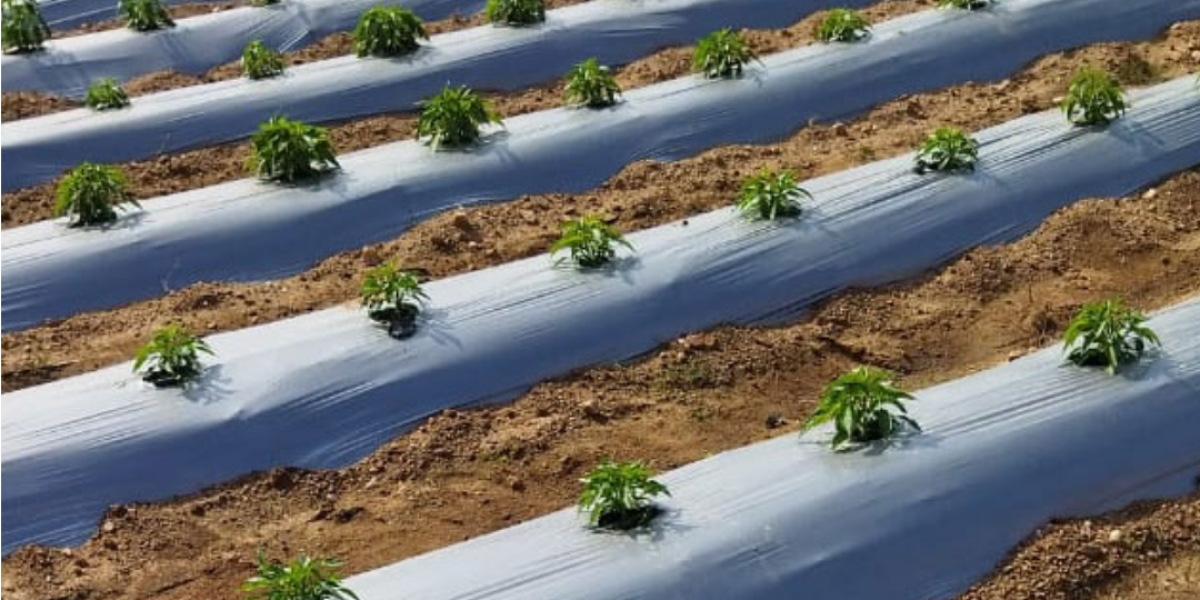Introduction: Transforming Farming Practices with Mulch Film
In recent years, agriculture has transformed towards more sustainable and efficient practices and the use of mulch film, more broadly used as plastic mulch film, has contributed to this evolution. As a thin plastic or biodegradable sheet placed over the soil, mulch film provides a controlled environment for the crop allowing farmers and growers to capture more productivity while consuming fewer resources. It is commonly recognized, mulch film helps with water efficiency, reduces weed pressure, and regulates soil temperature permitting its use incorporate into modern farming systems. As interest in more environmentally responsible practices grows in the industry, we have seen increased manufacturers entering the mulch film market, creating innovative solutions including biodegradable mulch films that provide some level of environmentally-friendly characteristics. Ultimately, the state of mulch film demonstrates the agricultural industry’s work towards balancing productivity with environmentally responsible stewardship.
Understanding Mulch Film and Its Core Benefits
Durable plastic films have many features and benefits. Agricultural mulch film is an inexpensive polyethylene plastic film that, much like traditional mulch materials, can be used to hold moisture in soil by regulating evaporation and maintaining a regular temperature, which is especially important for crops, and will effectively reduce weeds, requiring fewer manual laborers, and less chemical herbicides. Use of mulch film can increase yield and product quality making it cheap and sustainable for farmers. However, growing fears of plastic waste and pollution have forced the industry to go greener. Biodegradable mulch films, usually developed from bio-polymers will break down naturally and do not leave long-term environmental footprints.
The Role of Mulch Film Manufacturers in Advancing Sustainability
The leading manufacturers have been investing in research and development to produce films that meet criteria for durability and UV resistance as well as biodegradability. These innovators are also producing biodegradable mulch film that can be utilized across many agricultural practices. Some of the leading manufacturers are even creating biodegradable mulch film made from natural polymers made from renewable resources. Furthermore, these films will mostly decompose after they have been utilized, allowing farmers to maximize the utilization of valuable natural resources. Their solutions are not only rashly responding to sustainable agriculture trends, but they also help farmers comply with evolving local and global regulations on farm management solutions and efforts to reduce plastic pollution.
Advantages of Biodegradable Mulch Film
The Compostable mulch film is the beginning of sustainable agriculture. Conventional plastic mulch film is made of polymers such as polyvinyl chloride (polyvinyl chloride) or other plastic material. Biodegradable mulch is made from corn starch, PLA (polylastic acid), or other compostable or biodegradable materials. After use, biodegradable paper mulch film will breakdown into organic matter within a relatively short time, typically three to twelve months depending on the growing conditions. The advantages of biodegradable mulch film are numerous; no labor and costs associated with removing and disposing of plastic mulch, inlet reduction in soil(negatively impacted by using plastic mulch for a period of time), and a meaningful reduction in plastic waste and pollution in the environment.
Challenges and Future Prospects in Mulch Film Technology
Although biodegradable mulch film has exciting possibilities, there are issues that need to be solved before wider usage can take place. The biggest barrier is cost. Biodegradable mulch film is often more expensive than conventional plastic mulch. Other environmental factors, like soil moisture, temperature, and microbial activity can affect rates of biodegradation which can be emergency bind on a regional basis. Durable mulch films need to endure weather conditions while getting through the crop cycle. More durable characteristics of mulch films will also further plastics. Technology and innovations in polymer science and manufacture will be utilized to rendering these challenges increasingly irrelevant. The outlook of mulch film is more intelligent, lower cost, and environmentally-compatible mulch films.
Conclusion
In summary, Mulch film plant manufacturers has emerged as a key element in sustainable agriculture, providing measurable gains in crop production, efficient use of resources, and protection for our environment. The shift from traditional plastic mulch to biodegradable mulch film shows an industry willing to lessen its environmental footprint while still being respectful of agricultural needs. As mulch film manufacturers are creating and refining biodegradable formulations of mulch films, farmers around the world are adopting them as they are an extremely useful and sustainable alternative to traditional plastic mulch, and are more aligned with the world’s sustainability goals. With their adoption of biodegradable mulch films, farmers can reduce plastic waste, help with soil health, and contribute to a more sustainable future. As the mulch film industry continues to innovate, reshape, and evolve, an exciting new frontier of agricultural productivity and environmental accountability awaits.
Frequently Asked Questions
- What distinguishes biodegradable mulch film from conventional plastic mulch?
Biodegradable mulch film is made from natural or compostable polymers that decompose into organic matter after use, whereas conventional plastic mulch is derived from non-degradable polyethylene, which persists in the environment unless properly disposed of. - How long does biodegradable mulch film take to decompose?
Typically, biodegradable mulch films decompose within three to twelve months, depending on environmental factors such as soil temperature, moisture, and microbial activity. - Who is the largest manufacturer of Mulch film?
The largest manufacturer of mulch film is generally considered to be Berry Global. Berry Global is a leading global producer of plastic films.












